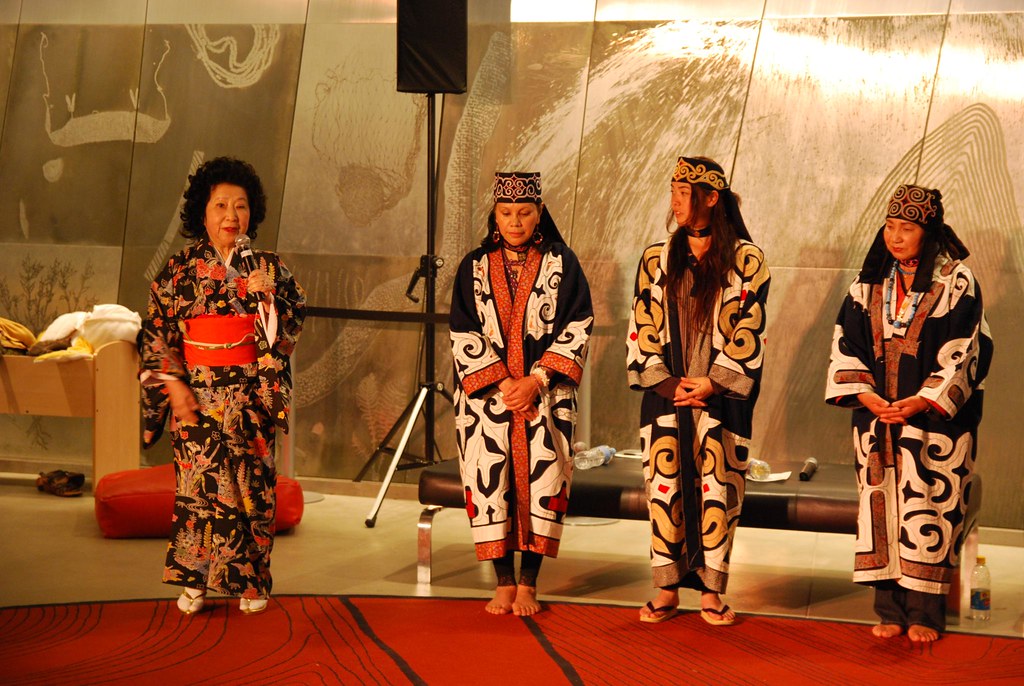As Japan's indigenous people, the Ainu have long preserved their unique culture, which includes a rich mythology. From gods and goddesses to supernatural beings, their stories offer a glimpse into a world that existed long before modern Japan.
Origins of Ainu Mythology
The Ainu mythology traces its origins to the belief in animism, where every animate and inanimate object has a spirit. According to their tradition, the gods and goddesses created the world and all living things. They also had the power to promote health, prosperity, and fertility.
Gods and Goddesses of Ainu Mythology
The Ainu pantheon consists of a wide range of gods and goddesses. Some of the most revered ones include:
- Kamuy Fuchi: The goddess of food and fishing.
- Okikurumi: The god of thunder and swords.
- Nutap-Kamuy: The goddess of the lake and marshes.
In Ainu mythology, Kamuy Fuchi is highly revered as the goddess of food and fishing. According to legend, she ensures the bountiful supply of nutritious food for the Ainu people, who are heavily dependent on fishing and hunting for their sustenance. Along with Kamuy Fuchi, two other deities, Okikurumi and Nutap-Kamuy, hold great significance in Ainu folklore. Okikurumi, known as the god of thunder and swords, is believed to control the forces of nature and ensure the balance between the natural world and the human realm. Nutap-Kamuy, on the other hand, is revered as the goddess of the lake and marshes, ensuring that the Ainu people have a constant supply of fresh water for their basic needs. Together, these deities form an integral part of Ainu culture, imbued with mythological significance and deep historical meaning.

The Ainu and the Natural World
For the Ainu, nature was the foundation of life, and their mythologies reflected this deep connection. Trees, mountains, and rivers held sacred meanings and were closely interwoven into their daily lives.
The Ainu people, native to Hokkaido, Japan, have always held a deeply rooted connection with nature. In the Ainu culture, the land was not simply a resource to be harvested or managed, but rather the foundation of their livelihood. Their mythology reflected this connection, with the natural world playing a central role in their spiritual beliefs. Trees, in particular, were revered as sacred beings, embodying the spirit of the forest and providing shelter, food, and medicine. Mountains were respected as symbols of strength and endurance, embodying the essence of Ainu spiritual beliefs. Meanwhile, rivers and streams held vital importance as a source of water for their daily needs, but also as a symbol of the eternal cycle of life and death. In sum, their relationship with nature was one of deep respect and symbiosis, where humans lived in harmony with the natural world, recognizing their interdependence and the essential role that nature played in the Ainu way of life.
Supernatural Beings in Ainu Mythology
In Ainu mythology, there are countless supernatural beings that controlled various aspects of nature. Some of them include:
- Kim-un Kamuy: The god of bears.
- Repun Kamuy: The god of the sea.
- Yukar Kamuy: The god of trails and roads.
The god of bears, Kim-un Kamuy, is believed to control the population and hunting of bears. Repun Kamuy, on the other hand, is responsible for the vast seas that surround the Ainu homeland, ensuring its safety and bounty. The god of trails and roads, Yukar Kamuy, is thought to govern the safe passage of travelers throughout the wilderness. These powerful deities are revered and respected by the Ainu people, who have long sought their protection and blessings in their daily lives. The mythology of the Ainu people provides a unique insight into their deep connection to the natural world and the spiritual forces that govern it.
The Ainu mythology offers a unique perspective on Japan's indigenous religion and culture. From their gods and goddesses to the supernatural beings, it is a fascinating world that deserves greater exploration.
As we continue to discover their rich heritage, we must also acknowledge the threats faced by the Ainu people today. By engaging with their mythology, we can learn more about their values and beliefs, and work towards the preservation of a culture that is truly one-of-a-kind.
Further Reading: Nintendojo